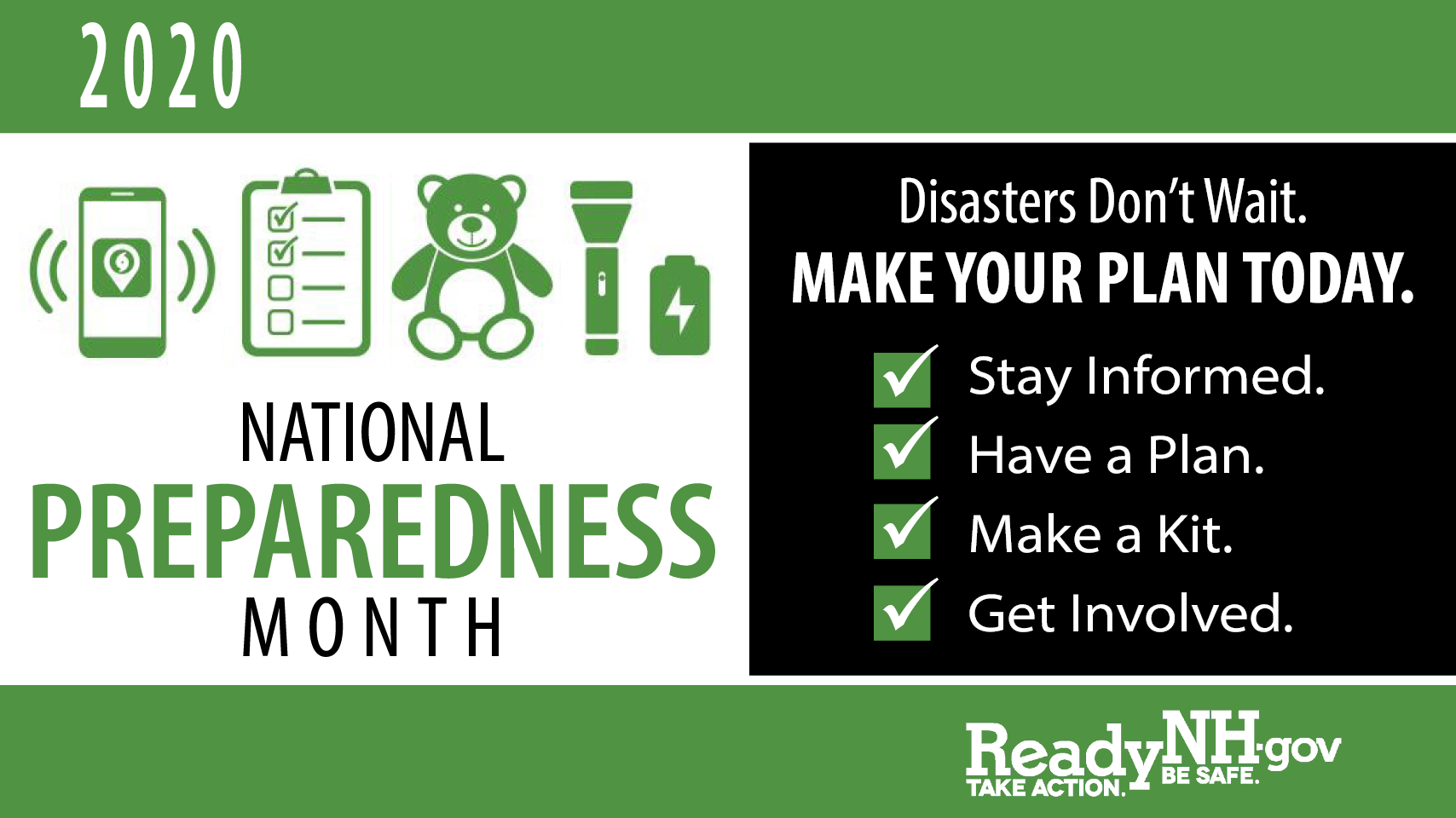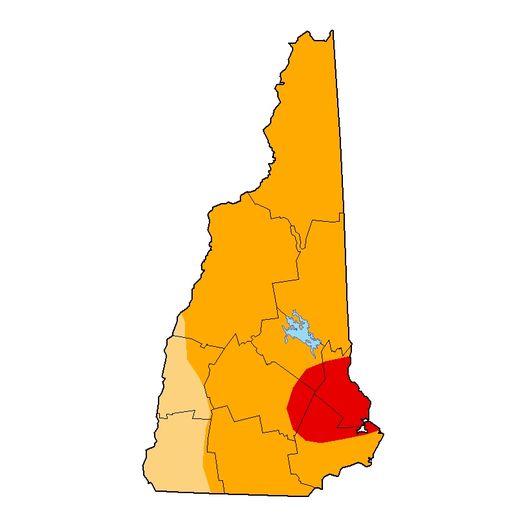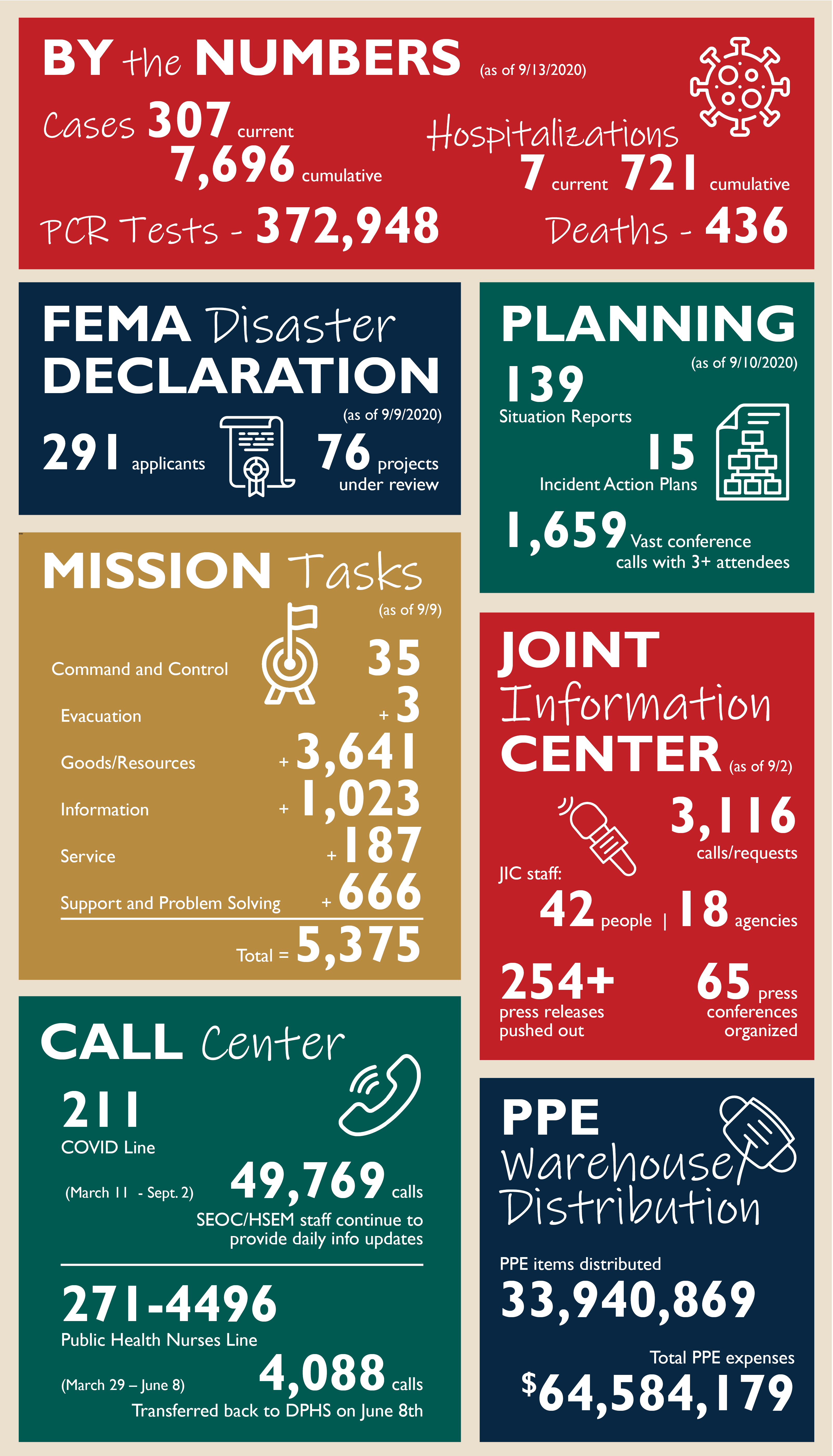September is National Preparedness Month

September is National Preparedness Month and New Hampshire Homeland Security and Emergency Management participated to increase preparedness efforts throughout the State. This year’s national theme was Disasters Don’t Wait. Make Your Plan Today.
Each week of National Preparedness Month, NH Homeland Security and Emergency Management emphasized a unique aspect of preparedness:
- Week 1 – Stay Informed
- Week 2 – Have a Plan
- Week 3 – Make a Kit
- Week 4 – Get Involved
“Preparing your family for an emergency doesn’t have to be difficult,” said Homeland Security and Emergency Management Director Jennifer Harper. “For families with children at home, it is even more important to be prepared. Learn preparedness tips and download free resources at ReadyNH.gov.”
The core steps toward preparedness are simple:
- Stay informed. Sign up for emergency alerts on your mobile device and landline telephones. Free services are available including NH Alerts or your local radio/television weather app for smartphones.
- Make sure your family has an Emergency Plan so everyone knows where to go and what to do in an emergency. Include emergency contact information so everyone knows how and where to reconnect after an emergency occurs.
- Build an Emergency Kit that contains basic items you and your family may need if an emergency happens.
- Get involved in preparedness efforts in your community through organizations like VOAD (Voluntary Organizations in Disaster), CERT (Community Emergency Response Teams), or Neighbors Helping Neighbors. Taking a First Aid/CPR class is a great way to be more prepared for an emergency.
For more detailed, easy-to-follow instructions of what to do before, during, and after a disaster, go to ReadyNH.gov.
Ready the Prepared Puppy Coloring Contest

In advance of National Preparedness Month, HSEM held its first-ever Ready the Prepared Puppy Coloring Contest. Winners were chosen at random, and all artists received a goody bag of Ready swag for their efforts. This year’s winners were: Gemma, age 4 of Swanzey, Shreya – age 6 of Bedford, and Torben, age 1 of Allenstown. Winners were announced by Director Harper to kick-off National Preparedness Month on September 1st. Thanks to everyone who entered!
NH Drought Update – September 24, 2020
As drought conditions persist throughout the state and worsen in parts of New Hampshire, The New Hampshire Department of Environmental Services (NHDES) is urging residents to conserve water now, and to report well problems to the state. According to the U.S. Drought Monitor, the entire state remains in drought and 8.5% of the state has now been elevated to D3-Extreme Drought, the third of four stages of drought. The lack of snow pack this past winter, along with well-below average precipitation this year are causing groundwater and surface water levels to continue drop.
As the growing season winds down and cooler temperatures set in, there is only a small window of time left to eliminate non-essential outdoor use in an effort to sustain supplies to meet essential future needs. NHDES recommends lawn watering stop and lawns be left to go into dormancy, which is a normal process for a lawn and occurs every winter. NHDES also recommends the elimination of all other non-essential outdoor use, such as car washing, washing down of driveways and patios, and power washing. Those residents on private wells are at a higher risk of experiencing supply issues and should conserve indoors and outdoors, as well as spread out water usage throughout the day to allow the well to recharge between uses. Information on opportunities to conserve such as fixing leaks and replacing outdated water fixtures may be found on the NHDES Drought Management webpage.
Since the current method for classifying drought was established in 2000, 2016 was the only other year NH experienced extreme drought. Currently, groundwater levels are below normal and similar to 2016, residential well owners across the state are reporting supply issues. Well drillers are experiencing a significant increase in business due to residents looking to remedy well issues and others hoping to avoid them. Due to the demand, well drillers are reporting waits greater than 6 weeks to get a new well drilled and others are booked until the end of the year. Many people deepened their wells after the 2016 drought, which may be providing resiliency for this drought. Some residents are seeking other options, such as hiring a bulk water hauler to fill their wells. While bulk water may seem to provide some temporary relief from dry well conditions, NHDES does not encourage this practice as it poses risks to the integrity of the well and water quality and generally has little benefit, as a great deal of water is lost to water seeping out of the well. If citizens wish to do this, the following steps should be followed to provide recharge to a drinking water well:
- Water needs to be obtained from a public water system or a source of water approved in accordance with regulations for Emergency Bulk Water Supply for Public Water Systems;
- Water needs to be transported in a dedicated tank for potable water that is consistent rules for Emergency Bulk Water Supply for Public Water Systems; and
- Water must be discharged into the well using hoses that are dedicated for use with potable water and using sanitary handling practices.
Residential well owners are requested to report water supply issues to NHDES using the “Residential Well Impact Survey” on the NHDES Drought Management webpage. To locate the survey, latest drought conditions and information related to managing residential wells during drought, go to www.des.nh.gov and scroll down the “A-Z list” to Drought Management.
Governor Sununu Issues Proclamation Prohibiting Kindling of Open Fire and Smoking In or Near Woodlands
Governor Chris Sununu has issued a proclamation prohibiting kindling of any open fire and smoking in or near woodlands throughout all 10 New Hampshire counties. Due to the drought conditions, low water levels in many communities, and an increasing potential for wildfires, there is great concern that wildfires could unexpectedly and rapidly increase, thereby endangering life and property.
Effective immediately, the following are prohibited:
- kindling of open fire, including fires built for camping, the burning of debris, or warming, on all public trails or other public property, excluding campgrounds
- kindling of category 3 “campfires”; a fire greater than 4 feet in diameter or a fire not contained within a ring of fire resistive material
- smoking a pipe, cigar and/or cigarette outdoors in or near public woodlands or on public trails
- kindling of category 1 & 2 “campfires”; not contained within a ring of fire restrictive material or in a portable fire place
Governor Sununu has authorized the Division of Forests and Lands to enforce the prohibition.
The Division of Forests and Lands and the Division of Homeland Security and Emergency Management will continue to provide information and updates to the Governor and public regarding forest conditions.
Election and School PPE
HSEM has been assisting in the coordination and delivery of PPE for schools and polling places throughout New Hampshire. As of 9/10, 1,031 requests from summer school programs had been filled. HSEM and the NH National Guard have distributed 100,000 reusable cloth face coverings to NH schools for use as communities reopen their facilities. In addition, 230,000 more cloth face coverings are en-route thanks to the U.S. Department of Health and Human Services.
HSEM also worked with the Secretary of State’s office to provide PPE to 234 communities throughout the state to keep our polling places safe during the September and upcoming November election days.
Seabrook Station Drill Cycle Update
HSEM, along with our local, state, and federal partners, continues to move forward on the biennial exercise cycle for Seabrook Station. The cycle was postponed due to the COVID-19 response, with CFE #2 now happening at the end of this month, and the Graded to December 8-9. We have found that our pandemic response has prepared us quite well for the level of response and decision-making required for an event at the nuclear power plant – and FEMA thinks so as well. We will receive “COVID-credit” for a large portion of the criteria, with the remaining skills demonstrated through a combination of remote and socially-distanced activities.




